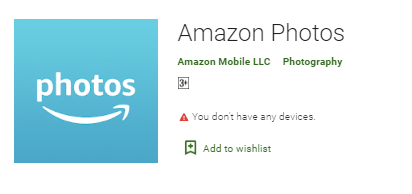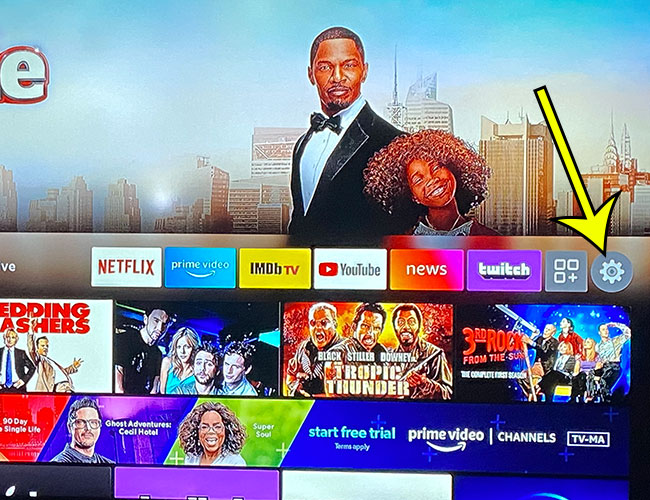1. USB Thumb Drive in a USB Port
Dec 28, 2017 For those, like me, who see these photos and want to add some of the locations to their photo bucket list: All 182 screensavers on your Amazon Fire TV and their locations (photos). Answer: Nitish Nair, if you are an Amazon Prime member, you can use your own photos, taken on a smartphone or camera and stored on the Prime Photos cloud service, as your Fire TV screensaver. If you have photos stored on Prime Photos, they can be accessed via a Prime Photos app pre-installed on. This video shows you how to find out where the screen saver pictures are from. Enjoy!If you need new FirestickFi.
Most modern TVs can play images and videos from a USB stick. Combined with the ability to perform these in a series on repeat they create an easy way to display a slideshow on your TV. When updating your slideshow, the drive will need to be removed from the TV, plugged into your computer and managed manually. No cloud access is available with this setup.
What’s needed: USB thumb drive ($10) and a TV that with repeat slideshow functionality.
2. Portable Digital Media Player
One step up from using the USB port on your TV is to use a portable digital media player such as the Micca Speck 1080p Full-HD Ultra Portable Digital Media Player. It is a useful media player that can play multiple images and video formats in full 1080p HD. The player comes with a remote control and connects to your TV via HDMI cable. This device includes some noteworthy features such as an SD/SDHC memory card reader, USB port, automatic restart after a power failure, aluminum case exterior and high bit-rate playback. Just like the first USB thumb drive option, you will need to remove your drive from this device, plug it into your computer and manage your media locally.
What’s needed: Micca Speck Ultra Portable Digital Media Player ($40), USB thumb drive ($10) and a TV with an available HDMI port.
3. Amazon Fire TV Stick and FlickFolio
If you want to manage your slideshow remotely and not have to physically remove USB drives from your TV, you will need a system that pulls images from the cloud. Amazon Fire TV Stick is a popular choice because it is a cloud-based media device, it’s a familiar product to many users, it’s affordable and is simple to set up.
The easiest way to create a looping slideshow using an Amazon TV Fire Stick is with the $2.99 app “FlickFolio.” This app pulls the images (slides) that you’ve uploaded to your Flickr account. One neat feature with this solution is that anyone with access to your Flickr account can upload photos and images into the slideshow album.

What’s needed: Amazon Fire TV Stick ($39), FlickFolio app ($2.99), Flickr account (free) and a TV with an available HDMI port.
4. Android Sticks and Photos Alive
Luke Irvine from Hillsong Church shared this one of a kind digital slideshows setup with me. He installed Rikomagic MK802 Android Mini PCs in his lobbies and connected them to his wifi network. For media playback he uses an application called “PhotosAlive! Digital Frame” which can automatically download pictures from a Dropbox account and display them fullscreen as a slideshow. You can adjust the slide transition time and also install an auto startup app (AutoStart – No Root) so that when the TV is on, the Photos Alive app starts automatically. One feature he particularly likes is how the device plugs directly into your HDMI port resulting in only one power cable and no bulky HDMI cords to manage.


What’s needed: Rikomagic MK802 or equivalent ($60), PhotosAlive! Digital Frame ($1.49), DropBox account (free) and a TV with an available HDMI port.
5. Raspberry Pi and Rise Vision Player
One last option that is gaining popularity is using Raspberry Pi and Rise Vision Player. Rasberry Pi is a microcomputer that DIYers love. It runs a Linux operating systems of your choosing, has multiple ports and can run web applications.
Typically users install Rise Vision Player on their device and use free presentation services that Rise Vision provides to its users.
What’s needed: Raspberry Pi ($45), Rise Vision Player (free) and a TV with an available HDMI port.
Free Slideshow Backgrounds

Do you need high-quality free still backgrounds? CMG has thousands of images to download.
Affiliate Link Notice
We hope you love the products we recommend! CMG may collect a small share of sales from the links on this page.
Information
More InformationThe company is currently testing using the screensaver to showcase the latest and most popular programming available without running ads
The very first screensavers were designed to protect computer monitors from having the same image displayed for so long that it burned a permanent ghost image on the Cathode Ray Tube. What began as a functional solution quickly became a fun way to express your creativity.
Photo Screensaver Maker
If you own the easy to use Amazon Fire TV, leaving the menu screen idle for too long still launches a screensaver. The Fire TV automatically launches a series of scenic photos which is admittedly more attractive than staring at a static menu.
Display your photos instead

As a Prime member, you’re eligible for free, unlimited cloud storage service for your photos. You can upload your favorites through the Amazon Photos app or turn on automated uploads for every photo on your phone as a backup. Either way, you can create albums, and sort them using the intuitive app or browser interface.
Once you’ve uploaded photos to Prime, you can see all of your special memories or favorite works of art using the Prime Photos app on your Fire TV. Or, enjoy a large screen view of your favorite photos on your Amazon Fire TV by setting your screensaver to display your album instead of the default.
Set your screensaver to use your photos instead of the stock images with these steps.
- Turn on your Amazon Fire TV
- Select Menu
- Navigate to Settings>Display & Sounds>Screen Saver
- Click on Amazon Collection
- Select a new collection or folder of images on Prime Photos
You can also change the way the pictures move on the screen, the speed at which they refresh, and how much time passes before the screensaver kicks in.
Upcoming additions to the screensaver options
Photo Screensaver Freeware
Amazon is always on the lookout for better ways to get new content to the top of your Watch List. The company is currently testing using the screensaver to showcase the latest and most popular programming available without running ads or disrupting your viewing experience. The newly repurposed screensaver makes it easier for customers to discover great new movies, TV shows, and live events from Prime Video, IMDb TV, Pluto TV, History, Hallmark, YouTube, and more.
Screensavers Pictures Photos
Are you part of the limited rollout of the new feature? Let us know what you think!